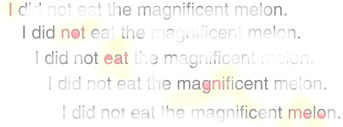

 |
Greg Kochanski |  |
The current trend toward strong protection for intellectual property will likely cause harm to many research activities in the humanities and social sciences. It already restricts research in many areas. The especially damaging combination of trend are strong intellectual property laws, combined with Digital Restrictions Management (DRM) software. The problem comes about because DRM software typically is not written to allow the "fair dealing" exceptions that are allowed by copyright law. Thus, in practice, researchers are losing their rights to access data.
For instance in the UK, Section 29(1) of Part I of the Copyright, Designs and Patents Act 1988 as amended (2003) states "Fair dealing with a literary, dramatic, musical or artistic work for the purposes of research for a non-commercial purpose does not infringe any copyright in the work provided that it is accompanied by a sufficient acknowledgement." This clause should allow access to films, music, and documents for a wide variety of University research. However, the authors of this study are not aware of any DRM software that actually implements Section 29(1). Broadly speaking, DRM software is written to make it hard for consumers to pirate the content, and researchers are - incidentally - treated as pirates.
DRM software is not just a technological trend, it is enforced by law. It is illegal to circumvent any copy protection scheme, and even illegal to construct or possess devices and computer programs that will be used to circumvent DRM. An example case where the High Court upheld the law was (1) Kabushiki Kaisha Sony Computer Entertainment Inc (2) Sony Computer Entertainment Europe Ltd (3) Sony Computer Entertainment UK Ltd v (1) Gaynor David Ball & 6 Ors, [2004] EWHC 1738 (Ch), 19 July 2004. Such a law is required by treaty obligations. Consequently, one cannot circumvent DRM software to gain access to protected content, not even for allowed research purposes. Even if it were legal to break DRM protections in pursuit of a fair dealing use, one could not legally possess the required tools.
DRM technology is also converging with the efforts of a group called TCPA (Trusted Platform Alliance), which aims to build hardware to allow strong control of what software can access what data. Other names for this are TC (Trusted Computing) and NGSCB (Next Generation Secure Computing Base). While this technology has its benefits, if adopted it will allow content providers to specify how software will display their product. For instance, a supplier of music could (and presumably would) require that Windows Media Player shall send the music only to the speakers and no where else. It would then be difficult and illegal to analyze the music with other software to understand the details of the musical performance.
Another related technology that comes under the general heading of DRM is CPRM (Content Protection for Recordable Media). CPRM is a mix of hardware (within the disk drive) and software (in an application program), and it aims to encrypt data as it is written to the disk in order to control the copying of sensitive data. This technology has been implemented since 2004 (CyberLink Corp PowerDVD http://www.prnewswire.co.uk/cgi/news/release?id=114946). If broadly implemented, it would check any disk accesses against rules provided by the content providers. The press release makes it clear that the technology is intended for controlling the playing of videos on DVD. Such a technology would be a severe problem for someone in film studies or someone who was studying advertisements. Likely, such a researcher would need to collect excerpts (or adverts), but the technology would prevent him or her from copying parts of the DVD.
We want to emphasize that there are many technologies under the general heading of DRM. By the time you read this report, the details may change, however there is a strong economic incentive for entertainment companies to implement DRM so we expect that DRM will not disappear. Conversely, there is no significant economic incentive for companies to preserve the "fair dealing" exceptions specified in copyright law, so we do not expect researchers to be voluntarily allowed special access. We note that the same problem also arises for legal uses of copyrighted materials for instructional purposes.
(This is released into the public domain.)
| [ Papers | kochanski.org | Phonetics Lab | Oxford ] | Last Modified Sun Jun 18 05:20:53 2006 | Greg Kochanski: [ Home ] |